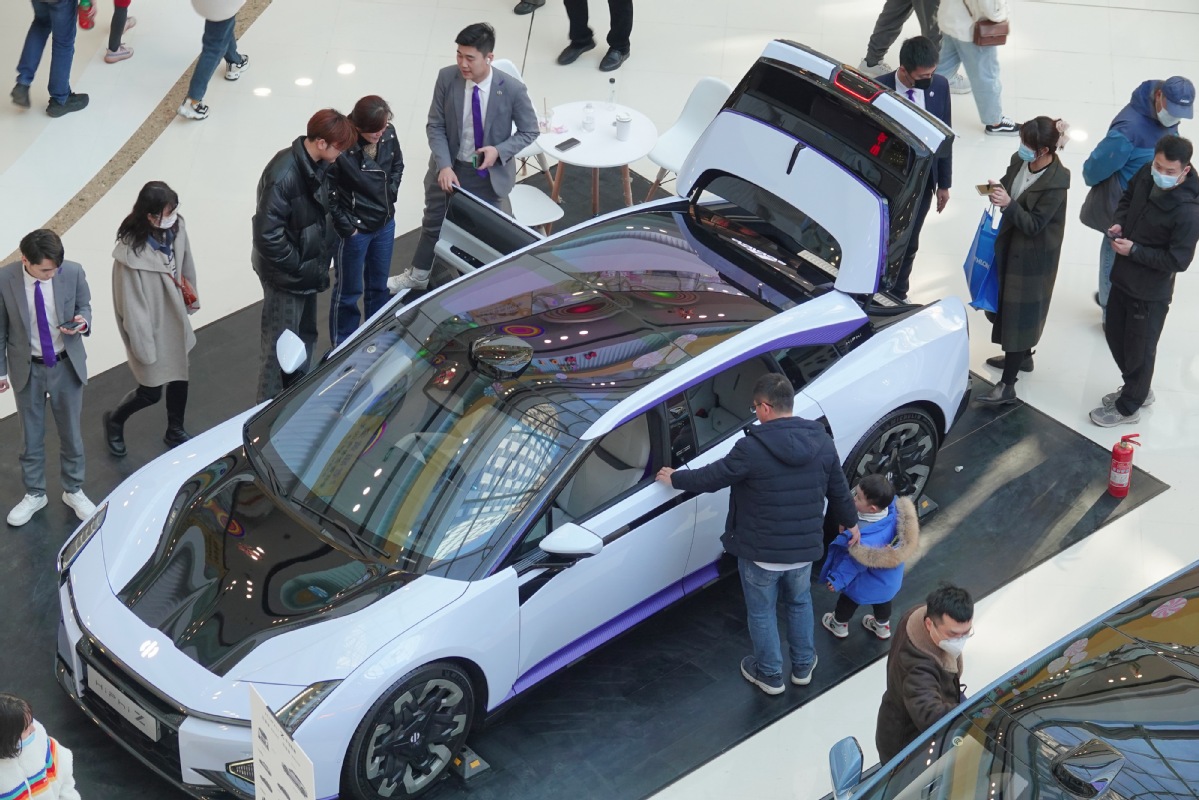Customer complaints evolve with in-car tech


The growing prevalence of fast-evolving, connected intelligent features in new energy vehicles has resulted in a broader range of complex consumer complaints in the auto industry, said the China Consumers Association, which released the first-quarter consumer complaints last week.
In the first quarter of 2023, the association accepted 10,552 auto complaint cases. Of these, 41.9 percent were focused on issues with battery systems, drive systems and electronic control systems of the NEVs.
Consumer concerns have been heightened by battery safety issues, which have become a recurring reason for vehicle recalls.
As a case in point, Volkswagen Group recently announced the recall of more than 100,000 plug-in hybrid vehicles worldwide due to fire risk, according to a company spokesperson.
Automakers' practice of limiting charging power or battery capacity through remote system upgrades, known as "electricity locking", has gained attention as a means of reducing safety risks associated with battery use.
However, this behavior can result in decreased charging speed, reduced power and a shortened driving range.
The association reported a case in which a Shanghai customer surnamed Yan purchased an NEV advertised with a 400-kilometer range. However, the automaker later "upgraded" the vehicle without the owner's consent, causing the battery voltage to decrease and limiting the range to 250 kilometers. The consumer felt cheated after paying a high price for a long-range NEV.
Yan Jinghui, a Beijing-based auto analyst at the China Automobile Dealers Association, said that car manufacturers should communicate with car owners and seek proactive solutions to problems like electricity locking and charging speed limits.
It is important to inform owners beforehand rather than acting without their knowledge, Yan said.
Other issues are related to intelligent assistance systems, which lead to system crashes in the central control unit and failure of sensors such as radar and cameras, and brake failure.
The CCA advises auto companies to boost research and development efforts for power batteries, enhancing their life cycle and low-temperature performance, minimizing the risk of fire incidents to ease consumers' range anxiety and ensure driving safety.
NEV makers also should enhance R&D for intelligent connected vehicle technologies, improving the accuracy and safety of auxiliary systems, lowering the malfunction rates and preventing serious accidents, the association suggested.
The CCA also highlighted complaints regarding NEV sales, after-sales and support services.
Sales of NEVs often involve false advertising regarding range and configuration, according to the association.
Range is exaggerated or not consistent with actual performance, while advertised features may not be included or activated in purchased vehicles.
In terms of the complaints of charging infrastructure, the association recommends improving the supporting services for NEVs by optimizing the supply of charging stations and utilizing technologies like big data and artificial intelligence to promote the sharing of resources for private charging stations.



































